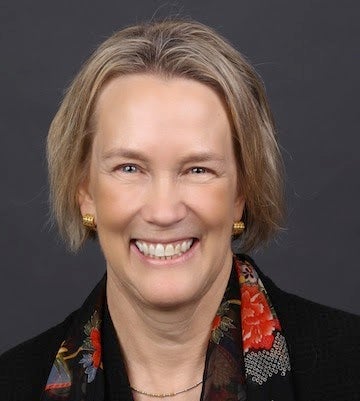“ESP is a fascinating and exciting field. As an ESP practitioner, you’re always learning something new.”
Kay Westerfield has taught international business communication and provided teacher training in English for Specific Purposes (ESP) for over 35 years in as many countries. Through this experience she has perfected her technique of addressing global educational challenges in academia and in workforce language training in cultures as diverse as those in Togo, Turkey, and Taiwan.
Westerfield’s long-term work in Costa Rica began in 2013 with the English = Employment project that was started by Carmen Chinchilla, Cultural Affairs Assistant at US Embassy San José, and continued with subsequent visits and virtual conferences into 2019. The overarching goal of the project was to work with local partners in tertiary institutions and the Ministry of Education for Technical/Vocational Schools to revamp the national education system to meet the global communication needs of the national workforce. Stakeholders in academia and industry wondered why after 11 years of English courses, graduates still couldn’t communicate.
The demand for bilingual employees was increasing. For example, Límon and Liberia (two of the top five cities in Costa Rica with the highest rates of youth unemployment) could offer good employment opportunities for young people if they had mastered English and had basic technical and customer service skills. Límon had an upcoming $1 billion port expansion, and Liberia was a hub for Costa Rica’s tourism industry, where a new group of target language learners, police and other first responders, was requesting language training to accommodate growing numbers of international tourists.

Because Chinchilla knew many of the key individuals in education, industry, and workforce development in the country, she “had a vision for how the State Department could support Costa Rica in developing their workforce in terms of English communication skills.” Chinchilla and Westerfield brought together four key institutions at the forefront of Costa Rican workforce development for consultations and seminars in ESP best practices to build a strategic partnership: the Ministry of Education for Technical/Vocational Schools, Universidad Técnica Nacional (UTN), Universidad Nacional (UNA), and the National Learning Institute for workforce training.
“English is a lifeline.”
And the outcomes? “Pretty exciting,” reported Westerfield. The consultancy demonstrated a return on investment through: 1) the strategic development of well-designed ESP curricula taking into consideration the sectors most urgently needed in the Costa Rican economy and collaborating with subject matter experts; 2) information sharing and curriculum articulation among the partner institutions; 3) a new Masters in Applied Linguistics with an Emphasis on Teaching English for Specific Purposes at UNA Heredia to meet the demand for trained ESP teachers/trainers; and 4) a heightened sense of a shared national mission among the partner institutions. The faculties have strengthened their collaboration to support long-term sustainability of their efforts. Westerfield also noted that two people now involved in directing ESP programs at UTN and UNA had received scholarships from US Embassy San José in 2012 to participate in her e-Teacher course, Best Practices in ESP, offered by the Office of English Language Programs and University of Oregon.

The English = Employment project recognized that training in English for Specific Purposes has circles of economic and social impact. It matters. The benefits extend beyond the individual and the walls of their company to their family, community, and ultimately to the growth of the nation’s economy. (See research into the economics of language.) During her travels, Westerfield would ask airline representatives in Saudi Arabia, front desk hotel workers in Moscow, or scientists in France whether English was important for their job, and received the reply, “I wouldn’t even have gotten the interview if I didn’t know English.” As one ESP science learner in West Africa put it, “English is a lifeline.”
Westerfield concluded that “ESP is booming. More and more multinational corporations are adopting English as their workplace language to increase efficiency. There is a critical need for effective workplace language training and support for both students and faculty, especially given the transition to English as a medium of instruction (EMI). ESP is a fascinating and exciting field. As an ESP practitioner, you’re always learning something new.”
Specialists, start your engines!

Kay Westerfield is a veteran consultant and invited speaker in the fields of English for Specific Purposes, International Business Communication, Leadership, and Program Evaluation. Kay has worked with audiences in academia and in the corporate sector throughout Africa, Asia, Europe, Latin America, and the Middle East. She founded and directed the International Business Communication Program at the University of Oregon. Kay is the co-author of several articles and books, including Effective Practices for Workplace Language Training. She served on the Board of Directors for TESOL International Association, and was recognized by TESOL in honor of the association’s 50th anniversary as one of the “50 at 50” – a list of 50 individuals who have made significant contributions to the profession within the past 50 years.
